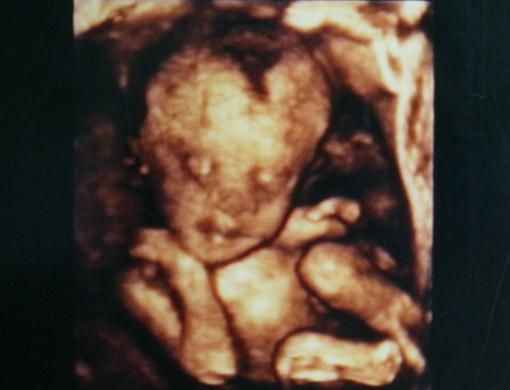Abu Dhabi: Only 30 to 40 per cent of pregnant women are aware of the advantages of the four-dimensional ultrasound (4DUS), which is a new tool for observing the foetal face, senior specialists have said.
The 4DUS allows doctors to observe the appearance and duration of a baby's facial movement and expression inside the uterus, Dr Gowri Ramanathan, Consultant Obstetrician and Gynaecologist and Foetal Medicine Specialist, told Gulf News.
Dr Gowri, was herself pregnant and two weeks from delivering her first baby when she arrived in Abu Dhabi last year to promote the Foetal Medicine Unit.
She said the foetal behaviour can be defined as activities observed or recorded with ultrasonographic equipment.
Investigators have also started to analyse foetal behaviour as a measure of neurological maturation.
"Fetal movement can be detected when an embryo is only seven to eight weeks into gestation," she added. "Through an ultrasound a baby can be detected kicking, flexing and extending the arms and the neck.
"We can detect the neurological movement of a baby as soon as his/her brains start to function," said Dr Gowri.
Finer movements are detected in the second trimester of a woman's pregnancy, when the baby is between 12 and 24 weeks. Movements such as blinking of the eye, sucking the thumb or swallowing are detected. There have been reports of foetal clapping.
The questions Dr Gowri asks include: "Does that mean some babies are more intelligent than others or is this just the action of two hands coming together? Can we predict babies' IQ from when it's in the uterus?"
Coughing and hiccups are also normal in foetal behaviour. "One of the most interesting things I've seen is a baby playing with its umbilical cord at only 22 weeks. It raises another question; do some babies develop habits quicker than others?"
Dr Gowri's also deals with problematic babies with genetic abnormalities (such as Downs Syndrome).
"Approximately 70 to 80 per cent of abnormalities are genetic. Their prevalence is high in the UAE due to consanguineous marriages or wedlock among close relatives.
"We can detect that using the old method of real-time 2D sonography," she said.
Normal exercises urged
Dr Gowri's advice to pregnant women for proper physical and mental health:
- Stay Fit: Pregnancy is a normal physiological condition. Unless advised otherwise by your obstetrician continue normally. Quitting a job or your visit to the gym is not necessary.
- Eat Healthy: You must follow the healthy food pyramid and add a lot of carbohydrates, proteins and fruits to your diet. Keep your sugar intake to a minimum in order to prevent conditions like diabetes.
- Avoid stress: The mother releases hormones that are transmitted to the foetus and the baby becomes aware of the mother's stress level which may affect the child's behaviour after birth; this may have a role in conditions such as attention-deficit hyperactivity.
Should expecting mothers be trained about behavioural development in the womb? What factors influence the development process?
Your comments
I just had my baby girl last year. When I saw her through the 4D foetal scan machine she was resting her hand on her head. Hena, who is 14-months-old now still likes sleeping that way.
Anjali B Ramchandani
Dubai,UAE
Posted: November 08, 2008, 12:46













